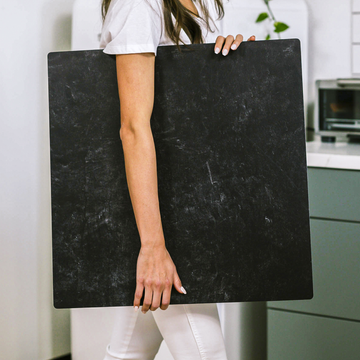Let's be honest - we've all been there. You set up what should be a simple white background cake shoot, only to end up with photos that look like they were taken in a fog bank. That beautiful buttercream cake you spent hours decorating? Now it's floating in a sad sea of gray. But here's the good news: with a few professional tricks, you can consistently create those crisp, clean white background shots that make cakes look irresistible.
Why White Backgrounds Work (And When They Don't)
White isn't just the default choice - it's a powerful psychological tool. That pristine white canvas makes colors pop and puts all the focus where it belongs: on your delicious creation. But before you automatically reach for that white backdrop, consider:
- Wedding cakes practically beg for white backgrounds - they look elegant and timeless
- Dark chocolate cakes might actually look more dramatic against light gray
- Rustic-style cakes can lose their charm if the background is too sterile
The Lighting Setup That Never Fails
Here's where most photographers go wrong: they think one light source is enough. Spoiler alert - it's not. For truly professional results, you need:
- A key light at 45 degrees to your cake (softbox or diffused flash)
- A separate light just for the background (1-1.5 stops brighter)
- At least 3 feet of distance between cake and backdrop
This simple three-point setup solves 90% of the "why does my white background look gray?" problems. The distance prevents shadow spill, while the dedicated background light ensures that crisp, clean white you're after.
Choosing Your White Surface Wisely
Not all white surfaces photograph the same way. That cheap foam board from the craft store? It's probably giving you uneven tones. Here's what actually works:
- Acrylic sheets - for that high-end glossy look (watch for reflections!)
- Professional matte vinyl - the secret weapon of food stylists
- Textured paper - adds subtle dimension without distracting
Pro tip: Keep baby wipes handy. Even the slightest frosting smudge will show up against true white, so quick cleanups between shots are essential.
The Editing Sweet Spot
Here's where many photographers go from "almost perfect" to "overcooked." When editing white background cake photos:
- Adjust the background brightness separately from the cake
- Preserve those delicate texture details in frosting and decorations
- Watch your white balance - that "white" shouldn't lean blue or yellow
Remember: Your goal isn't a perfectly blank white void, but a natural-looking environment that makes the cake look its absolute best. Sometimes pulling the whites back just 5% makes all the difference.
Ready to transform your cake photography? Grab your camera, try these techniques, and prepare to say goodbye to muddy gray backgrounds forever. Your cakes (and your clients) will thank you!


